Courses
- All
- 100-level
- 300-level
- 400-level
- 500-level
- Applied-Research
Professor, University Meteorologist
VICE CHAIR OF EARTH, ENVIRONMENTAL, & ATMOSPHERIC SCIENCES
METEOROLOGY PROGRAM | WHITE SQUIRREL WEATHER
EMERGENCY MANAGEMENT DISASTER SCIENCE CERTIFICATE PROGRAMS
DISASTER SCIENCE OPERATIONS CENTER (DSOC)
COLLEGE HEIGHTS ATMOSPHERIC OBSERVATORY FOR STUDENTS (CHAOS)
Dissertation: Assessing the role of mesoscale convective complexes in subtropical South American precipitation variability
Atmospheric Science, Remote Sensing, Hydrology
Thesis: The precipitation efficiency of warm-season mesoscale convective complexes in the United States
Atmospheric Science, GIS, Hydrology
Undergraduate Thesis: Kentucky tornadoes and the El Niño Southern Oscillation
Geology, Hydrology
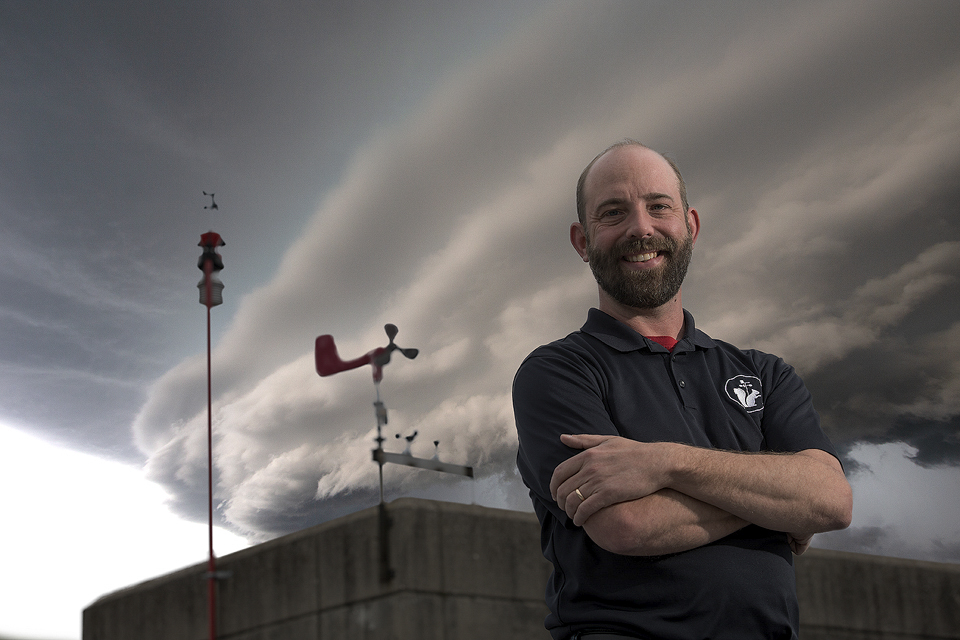
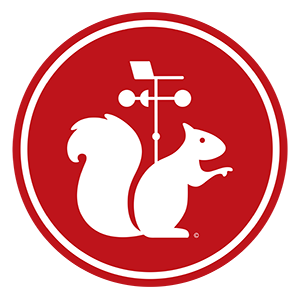
White Squirrel Weather (WSWX) was co-developed in 2016 an applied research and professional student service-learning initiative at Western Kentucky University, comprised largely of students who provide hyperlocal, real-time observations and customized weather forecast intelligence to the WKU campus and community partners. WSWX provides critical decision-support for the purposes of hazards mitigation, university & parterered events, and emergency preparedness & management.
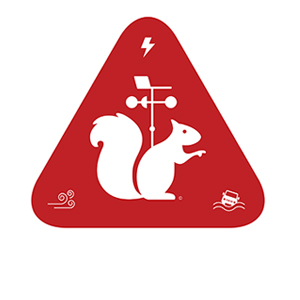
The Disaster Science Operations Center (DSOC) was launched Fall 2020 as part of the Applied Resarch & Technology Program at Western Kentucky University. The DSOC is a student-centered operation in partnership with the WKU Meteorology Program & White Squirrel Weather, WKU Environmental Health & Safety, WKU Public Broadcasting, & WKU Athletics, that provides all-hazards monitoring and decision support to the WKU campus and regional community partners.
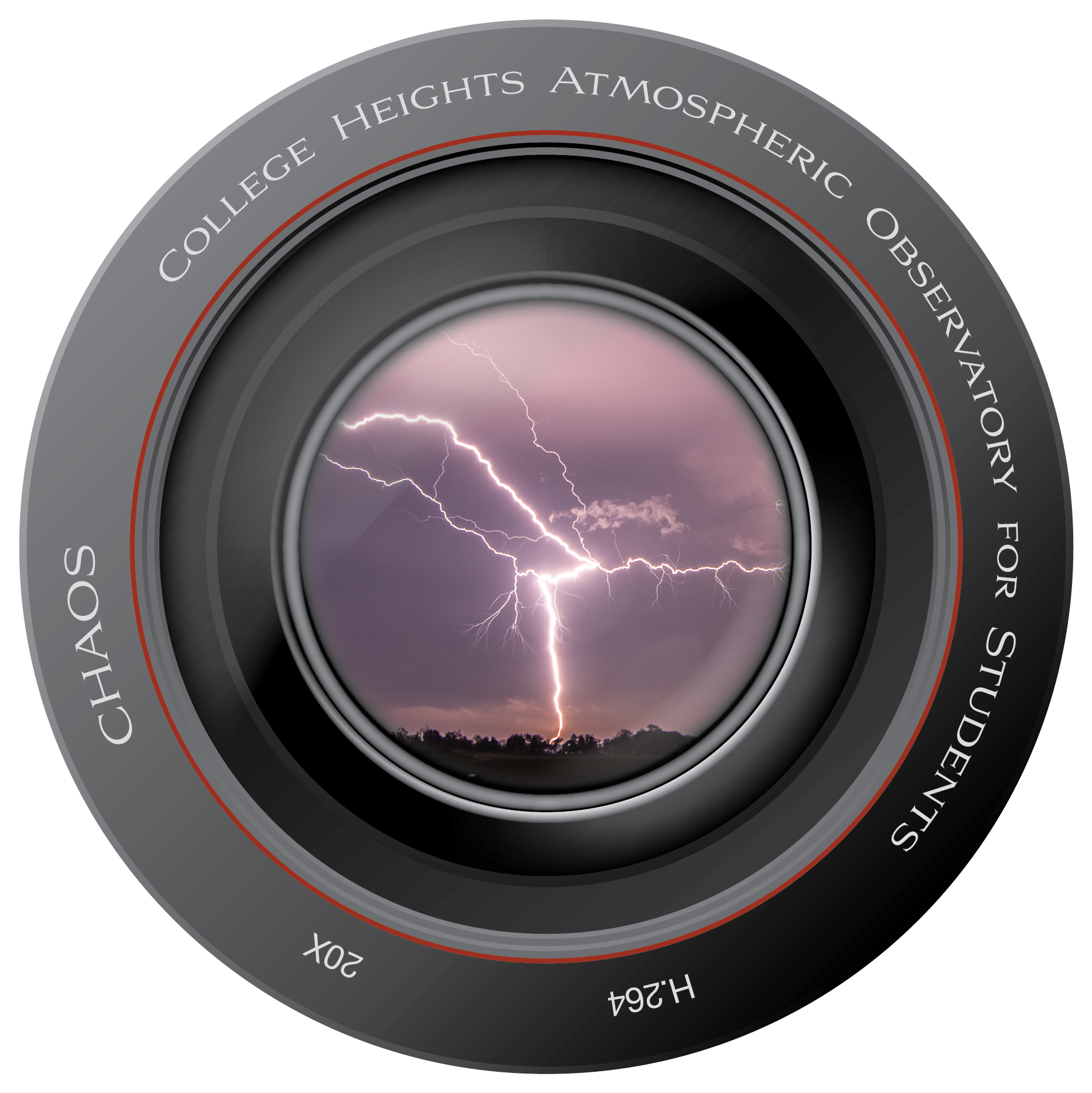
Originally the College Heights Weather Station, I created the College Heights Atmospheric Observatory for Students (CHAOS) in 2013 as a state-of-the art applied learning and research facility designed to engage students in practical weather monitoring and prediction experiences. The CHAOS lab includes high-end computing systems, a roof-top observation deck, and helps maintain White Squirrel Weather infrastructure and data. WSWX mobile apps are freely available. Apple. Android.
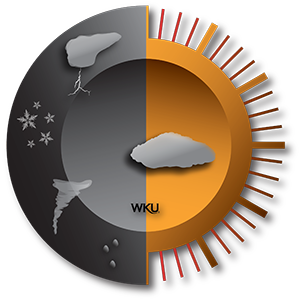
The purpose of any advisory board to provide external guiding perspectives. The Meteorology (METR) Program Advisory Board is comprised of 3 WKU Meteorology Program faculty, 2 EMDS faculty, 6 Program Alumni, and 3 external non-Alumnni Professionals. Together, these industry professionals, faculty, and alumni help advise the dirction of the WKU Meteorology Program in a manner that best promotes post-graduate student success with satisfied employers.

CLIMLIST is a longstanding global information service that I took over in 2009. CLMLIST is a moderated international electronic mail distribution list for climatologists and those working in closely-related fields. It is primarily intended for persons undertaking research in climatology, teaching climatology, providing services of a climatological nature, and networking with climate professionals. CLIMLIST maintains a global subscription base of more than 5,300.
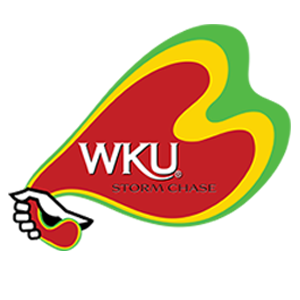
Formally known as Field Methods in Severe Weather Analysis & Forecasting, I created the WKU Storm Chase in 2010 as an intensive applied learning capstone course that focuses on forecasting severe convective storms across the Great Plains & traveling to document the outcomes. This course was recognized with a National Creativity & Innovation Award by the North American Association of Summer Sessions and a Life in the Field Award by the American Geosciences Institute.

The Emergency Management Disaster Science (EMDS) Program was launched Fall 2019 as an online-only certificate program that offers both, undergraduate and graduate courses to anyone interested in adding a professional credential to current employment or a stackable credential to an existing degree program. Students in EMDS have backgrounds in Military, Meteorology, Public Schools, Public Administration, Organizational Leadership, Athletics, among others.

The Meteorology (METR) Laboratory is a high-end computing facility comprised of a mixture of Unix and Windows-based operating systems with premeire weather analysis and research software for use in the WKU Meteorology Program. The METR Lab is the primary location of intruction for Introductory METR Lab courses, as well as Weather Analysis & Foreacsting, Satellite & Radar, Synoptic, Mesoscale, Weather Instruments, Physical Meteorology, & Atmospheric Computing courses.

The Meteorology (METR) Alumni Association was co-created in 2020 as a means to keep WKU Meteorology & subdiscipline graduates connected to the Meteorology Program. WKU Meteorology Alumni are a successful, well-connected, and sincere group of professionals who are proud of their education and experiences at WKU. Please consider a financial gift to the Meteorology Program to help current students in need of extra resources for conferences, field course fees, etc.

Over the years, the Meteorology (METR) Program has sponsored a 1-week overnight youth summer camp for kids ages 12-17 who are interested in learning about meteorology. Our Weather Camp features kids from all over the country, including Puerto Rico. Kids get to practice green-screen broadcasting, launch weather balloons with the National Weather Service, learn how to interpret weather forecast models, and so much more. Some WKU Weather Campers later joined our WKU Meteorology Program!